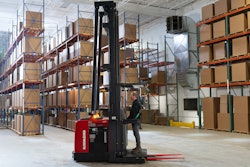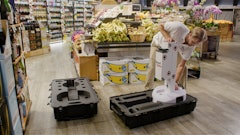
Nearly 95% of food retailers with e-commerce options saw an increase in online sales in 2020 as the result of pandemic-related changes in consumer shopping behaviors, according to a recent FMI report.
Yet, even while consumer demand for groceries increased by 50% last year, resulting in an unprecedented 15.8% growth in same-store sales, 80% of retailers surveyed said difficulties attracting and retaining employees is having a negative impact on their businesses.
“The pandemic transformed almost every aspect of the food retail industry – from the way consumers shop for groceries and consume their meals to how food is grown, produced and transported to supermarket shelves, to our ability to staff our stores and serve our communities,” says Leslie G. Sarasin, president and CEO of FMI. “Throughout the past year and a half, the food retail industry has been adapting to meet the shifting needs of the communities they serve. This year’s Speaks report outlines the resilience and transformation of the food retail industry amid the COVID-19 pandemic and examines the proactive strategies and investments retailers have made to adapt to the changing food retail landscape.”
From FMI-The Food Industry Association:
- Ongoing global supply chain issues driven by the pandemic continue to persist for food retailers in 2021, with 42% saying supply chain disruptions continue to hurt their businesses.
- Emerging technology is in the spotlight as food retailers step up investments, implementation and experimentation. Some 11% of retailers are already using micro-fulfillment, with 15% expecting to do so in 2021. Likewise, for ghost kitchens, those percentages are 8% using and 12% planning. And, more than one-third of food retailers are now using artificial intelligence in some form.
- Retailers are focusing on goals and implementation timeframes for a range of social responsibility efforts, including 73% diversity in hiring; 70% for diversity, equity and inclusion efforts overall; 61% energy use reduction and 57% for food waste reduction.




















